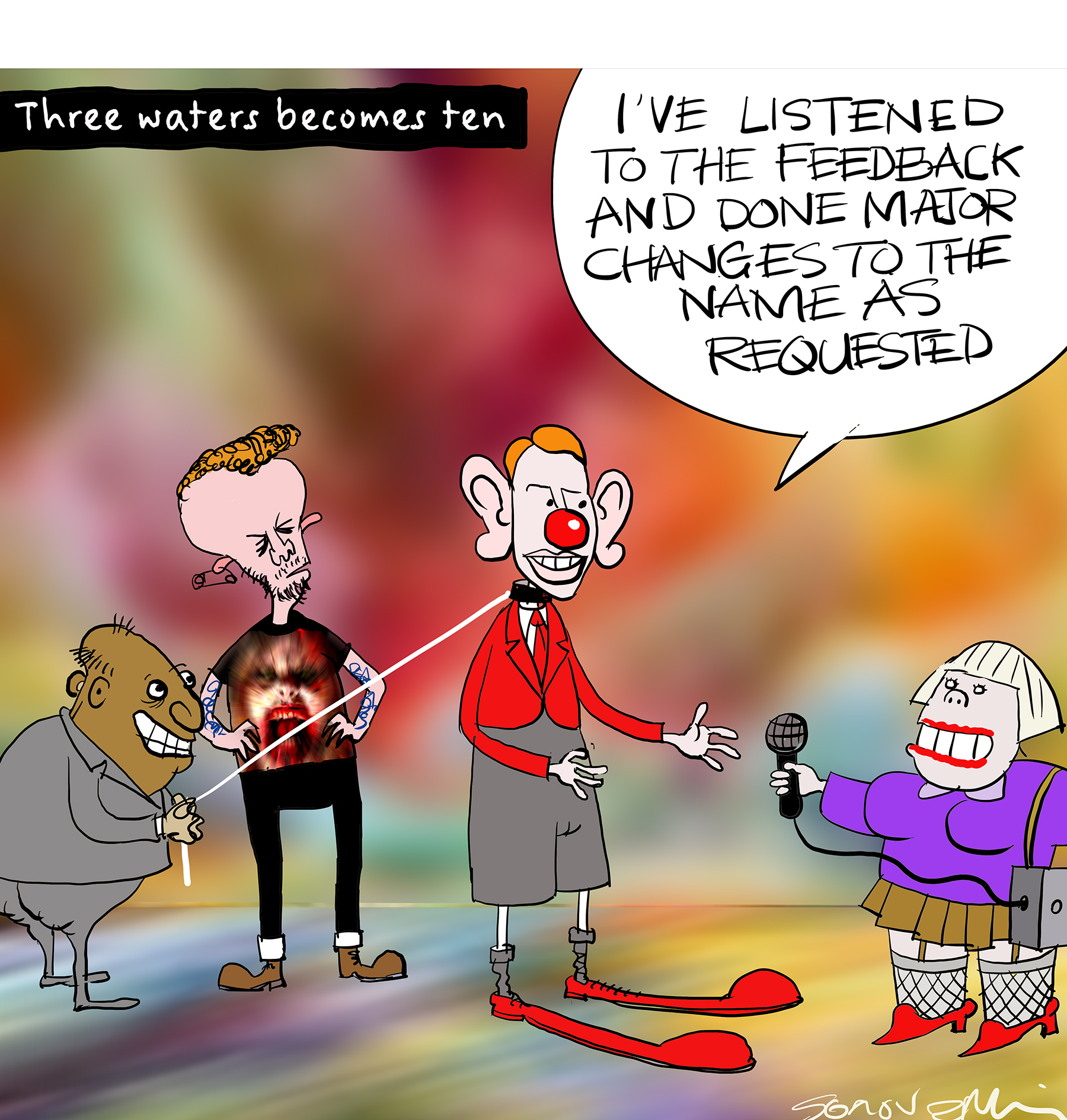Stuart Smith
National MP for Kaikoura
stuartsmith.national.org.nz
Democracy in New Zealand is being challenged from within.
And those who fought and died to protect our freedom would never have believed that the biggest threat to our democracy is not a foreign power, but our very own government.
The Three Waters rebranding is a strategy aimed at diverting attention from the true intent of the policy and reducing the intensity of the ongoing debate.
On assuming the role of Prime Minister, Chris Hipkins sent Nanaia Mahuta overseas – and she is likely to remain there for as long as possible – due to the negative impact caused by the revelation of her family members occupying influential and profitable positions within the Three Waters initiative.
Where nepotism goes, corruption soon follows.
But it was the hapless Kieran McAnulty, whose honesty was a welcome change on TVNZ’s Q & A program when he conceded that the Three Waters reform moved away from a one-person, one-vote sense of democracy.
McAnulty went on to say that the Treaty of Waitangi required antidemocratic representation. Well, this will be news to most of us given that article three of the Treaty states:
“In consideration thereof, Her Majesty the Queen of England extends to the Natives of New Zealand Her royal protection and imparts to them all the Rights and Privileges of British Subjects.”
For the avoidance of doubt, the Waitangi Tribunal, who are not known for their conservatism, state the meaning of article three as:
“In Article 3, the Crown promised to Maori the benefits of royal protection and full citizenship. This text emphasises equality.”
Clearly, the Treaty of Waitangi does not require any antidemocratic representation, in fact, it is to the contrary: it guarantees equal citizenship – and, by default, one person, one vote and each vote of the same value.
McAnulty went on to claim that their reform is the only way to achieve cost savings! Just how cost savings can be achieved, given that the reservoirs, pipes and treatment plants cannot be aggregated, is a mystery.
He also claimed that the only way to achieve balance sheet separation for water infrastructure is with their plan. This is errant nonsense and another attempt at distraction.
There is no doubt that some councils have managed their infrastructure very badly. Wellington City Council, for one, is a great example. They have for many years spent ratepayers’ money on vanity projects and neglected vital infrastructure. Is McAnulty saying then, that, with their plan, ratepayers whose councils have managed their infrastructure wisely should have to pay to fix the likes of Wellington’s mess?
All that aside, what must be stopped is the potential loss of democracy!
If the Labour Party want to ignore the equal citizenship provision in the Treaty of Waitangi, and base voting rights on ethnicity, then they should put it to the people in a referendum.
I will fight for democracy and one person, one vote. Will you?

